| Share |  |
 | |||
God's Good Herbs - Capsicum (Cayenne)
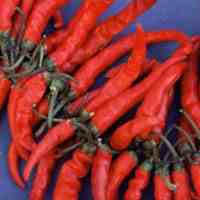 Capsicum is a pungent herb from the fiery red fruit of pepper plants used both medicinally and as a spicy condiment. It is more commonly referred to by other names such as cayenne, cayenne pepper, chili pepper, hot pepper, Tabasco pepper and African bird pepper, however each are comprised of the dried pods of tropical pepper plants from the Capsicum genus. The name is believed to have been derived from the Latin "capsa", or box from the pod-like fruit. Cayenne pepper is a pungent spice produced in many parts of the world by drying and grinding the fruit from Capsicum plants.
Capsicum is a pungent herb from the fiery red fruit of pepper plants used both medicinally and as a spicy condiment. It is more commonly referred to by other names such as cayenne, cayenne pepper, chili pepper, hot pepper, Tabasco pepper and African bird pepper, however each are comprised of the dried pods of tropical pepper plants from the Capsicum genus. The name is believed to have been derived from the Latin "capsa", or box from the pod-like fruit. Cayenne pepper is a pungent spice produced in many parts of the world by drying and grinding the fruit from Capsicum plants.
The fruit of this plant possesses numerous constituents and contains significant amounts of nutrients in the form of beta-carotene and other carotenoids, vitamin A, vitamin C, vitamin E, niacin, thiamin, riboflavin, vitamin B6, potassium, molybdenum and zinc. Capsicum is primarily known for its pungent hot taste and smell as well as its stimulating properties. The primary medicinal properties are derived from the compound "capsaicin", a resin like substance characterized by acrid vapors and burning taste that makes peppers hot. A pepper's use and value is determined by its degree of heat, which is measured in Scoville heat units. Capsicum peppers vary from 30,000 to 90,000 Scoville heat units. The more capsaicin a pepper contains, the hotter it will be and the more powerful its medicinal effects.
Though it has been used medicinally for thousands of years, it was first popularized in this country in the early 1800s by Samuel Thomson, an early American Herbalist and Naturopathic physician who considered Capsicum the most powerful herb next to lobelia. In his book "New Guide for Health," which contained his patented healing system widely used in rural America at that time, he wrote: "I have made use of Cayenne in all kinds of disease and have given it to patients of all ages and under every circumstance that has come under my practice; and can assure the public that it is perfectly harmless, never having known it to produce any bad effects whatever. It is, no doubt, the most powerful stimulant known; but its power is entirely congenial to nature, being powerful only in raising and maintaining that heat on which life depends."
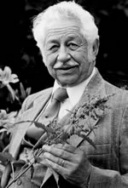 Powerful Circulatory Stimulant
Powerful Circulatory Stimulant
Capsicum is most noted for its stimulating action upon the circulatory system. Since adequate blood flow is so essential to deliver nutrients and oxygen to every cell in order for tissues to heal, Capsicum is often used in herbal formulas as a catalyst to heighten the effectiveness of other herbs and nutrients. It quickly increases circulation in every area of the body, both internally and externally. Capsicum helps to prevent blood clots by thinning the blood and reducing platelet stickiness. It equalizes blood circulation and helps bring blood pressure back to normal.
Due to its ability to act as a vasodilator in opening up arteries to allow increased blood flow, it has been known to stop a heart attack in progress as well as to prevent shock in situations of trauma. Dr. John Christopher, a Master Herbalist and Naturopathic doctor who created over 60 herbal formulas, many of which are in use today, never lost anyone to a heart attack in his 35 years of practice and house calls. If the person was still breathing, he would pour cayenne powder mixed with warm water down their throat and, invariably, a dramatic recovery occurred.
Dr. Christopher knew from personal experience the power of this herb as doctors told him at age 35 that he would not live beyond age 40 due to severe hardening of the arteries and other health conditions. After 10 years of taking Capsicum on a regular basis along with changing to a natural foods diet, Dr. Christopher was given a clean bill of health from the military medical examiner and was told he had the veins of a teenager. He later became the only practicing herbalist in the United States Army, authored five books, founded the School of Natural Healing in 1953 and was responsible for teaching and guiding countless individuals in the art of natural healing.
Capsicum is often recommended for cold hands and feet, sluggish metabolism and to relieve painful muscles, sprains and stiffened joints since it draws blood out to the extremities. It also acts to deplete the activity of Substance P, a neurotransmitter found in the brain and spinal cord thought to cause pain and be associated with inflammatory processes in the joints. When used in a cream or gel externally, Capsaicin can bring relief from pain by increasing the blood flow to the area to which it is applied. Because of its abilities to increase circulation, Capsicum can even be used to warm up cold feet by putting the loose powder either on top of cotton socks or sprinkled inside of shoes.
Benefits for the Digestive System
Another way Capsicum's stimulant properties are used is for digestive ailments. When taken internally, Capsicum actually soothes the digestive tract and stimulates the flow of gastric juices and saliva, which helps to digest food. It also stimulates the peristaltic action of the colon, relieving gastrointestinal problems such as cramping and gas.
Since Capsicum is hot, it would seem that taking it internally would irritate or cause ulcerations in the intestinal tract. On the contrary, it has been found to speed up the healing of ulcers by triggering the secretion of additional mucous to protect the lining of the intestines. People have successfully used Capsicum in its whole herb form (not isolations of capsaicin) to treat ulcers with no ill effects when amounts are gradually increased to allow time for the mucus membranes to adapt. If it does cause a burning sensation, a capsule or two of slippery elm bark can soothe and cool the area while the body adjusts.
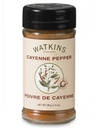 Additional Uses for Capsicum
Additional Uses for Capsicum
Capsicum can also help to remove congestion and reverse colds, especially when taken liberally in the early stages. Small repeated doses of one to two capsules each hour with warm water is recommended to shorten the duration of colds and flu. Though it may initially be painful to a sore throat, gargling with capsicum can greatly diminish or even eliminate sore throat pain. Using an infusion or tincture of capsicum as a stimulating astringent throat gargle is even more effective when used in combination with herbs that help kill bacteria such as goldenseal, bayberry root bark, myrrh gum or Echinacea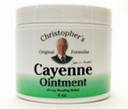
Cayenne power can be used to stop bleeding in cuts and wounds as it helps to equalize blood pressure and increases the clotting action of the blood. It can be taken internally and/or poured directly on the wound. Though it burns intensely, it will generally stop the bleeding in 10-30 seconds. Other health conditions helped by capsicum are relieving pain of shingles, diabetic neuropathy, cluster headaches, toothache, psoriasis, and fibromyalgia.
A widely used method of cleansing and detoxifying the body through fasting uses cayenne pepper as one of its three ingredients. Fresh organic lemon juice and Grade B maple syrup are the other ingredients in the "Master Cleanse" formula used to eliminate toxins from the body without incurring significant energy loss or discomfort.
Usage Guidelines
Capsicum is available in the form of encapsulated or loose powder, tinctures (liquid extracts) or oil extracts that can be made by allowing one tablespoon of Capsicum powder to soak in one pint of hot olive oil for 24 hours. For external use, the oil extract or a cloth dipped in a solution of one teaspoon of powder dissolved in a quart of boiling water may be applied to the affected area.
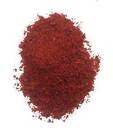 For internal use, capsules (generally 500 mg) may be taken four times a day with food for general use in aiding circulation and digestion. More may be needed to effectively treat some conditions. Another method is to ingest one tablespoon of a tea made by dissolving one teaspoon of the power in a cup of boiling water every three to four hours. The latter method is an effective way to accelerate Capsicum's healing work in the body. The recommended amounts of cayenne to be given orally in the rare occurrence of heart attack, shock or trauma, is either 5 to
For internal use, capsules (generally 500 mg) may be taken four times a day with food for general use in aiding circulation and digestion. More may be needed to effectively treat some conditions. Another method is to ingest one tablespoon of a tea made by dissolving one teaspoon of the power in a cup of boiling water every three to four hours. The latter method is an effective way to accelerate Capsicum's healing work in the body. The recommended amounts of cayenne to be given orally in the rare occurrence of heart attack, shock or trauma, is either 5 to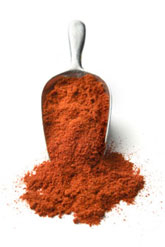 10 droppers full of the tincture or one teaspoon of cayenne powder in a cup of very warm water every 15 minutes until the crisis has passed and/or medical help arrives.
10 droppers full of the tincture or one teaspoon of cayenne powder in a cup of very warm water every 15 minutes until the crisis has passed and/or medical help arrives.
Topical creams or gels containing capsicum commonly used for arthritis, diabetic food pain and shingles are also available. Do not apply creams or gels containing capsicum or cayenne to injured skin or open wounds or allow it to come in contact with the eyes as it will undoubtedly burn.
This herb also can be used as a condiment to sprinkle on foods in the same manner as black pepper or it can be used to add spice to a variety of dishes. It is advisable to use it sparingly since it is so hot. Cayenne should be bought in small quantities and kept out of sunlight as it easily loses in pungency.
Capsicum is one of the most versatile and beneficial herbs to be found in the spice rack in addition to the powerful ways it stimulates and brings healing to the body.
Copyright © 2008-2015 Lucinda Bedogne, CNHP, CNC
Post Your Comment...
|
|
||||||||||||


